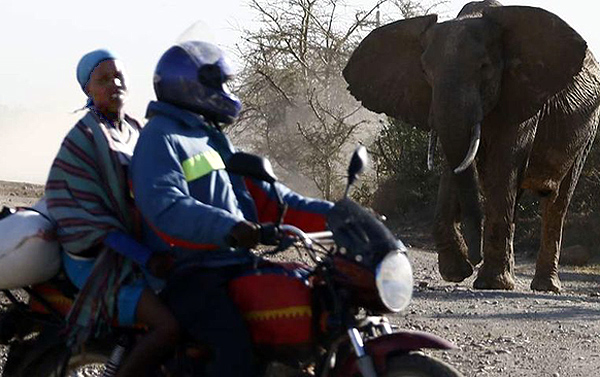
Wild animals and wildernesses are seriously endangered by the pandemic … not from disease, but from humans.
Poaching is increasing worldwide… not as in the past for black-market animals, but for food. Equally important communities worldwide are reducing their support for wildlife conservation, because wildlife authorities are ignoring the increasing human/wildlife conflict.
“Food security in my village is under threat [from] wild animals,” Kenyan university student, Marion Jepkosgei, writes today in Nairobi’s Daily Nation.
Ms. Jepkosgei documents colobus monkeys destroying crops of beans and corn that just recently suffered from locusts. She describes villagers losing cows and goats to hyaena and how organized militias of dogs and young men now search and destroy them.
“The delayed government response to the conflicts … has forced communities in Kenya, such as mine, to find their own means of dealing with the menace.”
This conflict leads immediately to another. Conservation International reports months of surging black markets for bushmeat in Kenya.
The Wildlife Conservation Society confirmed to the BBC that “people [who] have lost their jobs are now having to depend on poaching, logging or other activities that are degrading nature because they have no other option.”
Then comes tragic collateral damage from the bush meat trade. For the first time in more than twenty years, a rare mountain gorilla was killed in June. The now jailed poacher was apprehended hunting wild antelope, not gorilla, and claimed that he killed the gorilla in self-defense.
Nature Conservancy’s director takes the catastrophe from subsistence to still another level: “Desperate times can lead to more criminal activity, which translates into an increase in poaching for ivory and rhino horn.”
That’s not all.
“There has been a tragic inability to separate conservation from tourism in Africa,” Kenyan conservationist Mordecai Ogada told GreenBiz recently. With tourism nonexistent there are no resources available to manage wildernesses or wildlife. The longer this continues, the worse it gets.
In an outstanding collective commentary published recently in Mongabey a number of prominent conservationists compares the current conundrum of wildlife management with institutionalized racism.
“The ongoing reckoning … on systemic racism is especially pertinent for conservation.
“In parallel with the environmental justice and intersectional environmental movement, conservation must also recognize that achieving sustainability will require centering frontline communities as equal and meaningful leaders in developing and implementing conservation actions.”
These far-thinking conservationists recognize that the people most effected by conservation are local communities, and that they have been systematically ignored.
Ignored for the benefits of tourism; ignored for the dispositions of educated, developed western wildlife enthusiasts; and ignored by their own officials since fragile conservation areas are often in the least developed areas of any country.
The economic and intellectual inequality within developing countries is often as great as in developed countries. Too often the leaders of a developing nation are completely out of touch with the remote citizens who live adjacent fragile wilderness areas.
The Mongabey authors argue for a new and dynamic approach to conservation that puts the frontline communities first in any efforts.
This is probably good, but I worry that it will be side-railed by quick fixes of the sort implemented in the 1990s following the poaching catastrophes of the 1980s. Ecotourism and “community-based tourism” are horrible failures, conceptually and now as demonstrated during the pandemic, fiscally as well.
True integration of frontline communities into conservation reckons benefits will be principally local, resulting thereafter in overall benefits to global conservation. And it begins with the admission that local communities have been excluded, institutionally, from previous conservation efforts.
“In the wake of this pandemic, return to business as usual is not a viable option. The existing systems and structures upon which conservation is based must evolve.”